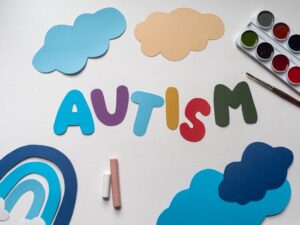In today’s world, more and more children are facing anxiety issues. Academic pressure, family dynamics, social struggles, and the increasing influence of digital media all contribute to a child’s emotional distress. Anxiety disorders, one of the most common emotional challenges in children, have become a significant factor affecting their development. As parents, it is essential not only to recognize the impact of anxiety but also to understand the root causes behind it so that we can effectively help our children cope and overcome it. So, what exactly causes children to experience anxiety? Let’s explore.
1. Academic Pressure and Performance Anxiety
Throughout a child’s growth, academic performance often becomes their primary source of stress. Expectations from school, parents, and society regarding their academic achievements can leave children feeling overwhelmed.
- Pressure to Perform: As academic demands increase, children are constantly expected to improve their grades. This pressure comes from school, family, and even the child’s own hopes for the future.
- After-school Tutoring: To keep up with schoolwork or stay ahead of peers, many children attend various tutoring classes. While these classes may help academically, they also add stress, leading to anxiety.
Coping Tips: As parents, it’s crucial to encourage children to enjoy the learning process, rather than focusing solely on grades. Avoid overloading them with after-school tutoring and allow time for rest and relaxation, so they can learn in a stress-free environment.
2. Family Dynamics
The family is a child’s first social circle, and the relationship and environment within the family play a pivotal role in a child’s mental health. If there are issues within the family, the child’s anxiety can intensify.
- Parental Conflict or Divorce: When parents argue frequently or go through a divorce, children often feel insecure and anxious. This situation not only changes their family structure but also leaves them emotionally isolated.
- Overprotectiveness vs. Neglect: Some parents are overly protective, which can cause children to develop dependence and a lack of problem-solving skills, leading to anxiety. On the other hand, neglectful parenting can make children feel isolated and helpless.
Coping Tips: Parents should create a stable, harmonious family environment and foster good communication with their children. Show love and support, and minimize internal family conflicts.
3. Social and Peer Pressure
In addition to family and school, social pressures and comparisons with peers are also significant contributors to children’s anxiety. This is especially true when children reach their teenage years and begin to place more importance on their peer relationships and how society views them.
- Peer Pressure: Children may feel anxious about their place in the social circle, worrying about being excluded or judged, particularly when it comes to making friends or participating in group activities.
- Social Media Influence: With the rise of social media, many children are exposed to idealized images of life, beauty, and success, which can lead to feelings of inadequacy and anxiety.
Coping Tips: Parents need to teach children how to use social media responsibly and build self-confidence. Help them understand that the "perfect" image seen online does not represent reality, and encourage them to appreciate their own uniqueness.
4. Sensitivity of the Child
Not all children develop anxiety because of external factors. Some are naturally more sensitive and may feel anxious even in seemingly minor situations.
- Fear of Change: Some children are more sensitive to change, such as moving to a new home, switching schools, or the addition of a new sibling. Even small changes in their lives can trigger anxiety.
- Worries About the Future: Certain children tend to overthink and worry about the future, becoming anxious about things like an upcoming test, a trip, or any new experience.
Coping Tips: For these sensitive children, parents need to be more patient and understanding. Establish a regular routine and provide a sense of security, while also teaching children how to cope with uncertainty and change.
5. The Impact of Media and Entertainment
In the digital age, the content that children consume through television, movies, and video games has a subtle but powerful impact on their mental state.
- Violence and Scary Content: Violent or scary scenes in TV shows, movies, and video games can cause children to feel fearful and anxious.
- Perfect Image on Social Media: Children may experience anxiety when they compare themselves to the "perfect" lives and appearances presented by influencers or celebrities on social media.
Coping Tips: Parents should filter the entertainment content that children are exposed to, ensuring it’s healthy and age-appropriate. It’s also important to guide children to understand that the idealized images on social media are not real, and they should embrace their own individuality.
FAQ - Common Questions About Children’s Anxiety
1. How can I tell if my child is anxious?
An anxious child may show signs such as persistent emotional distress, insomnia, changes in appetite, or excessive worrying. If you notice that your child seems unusually restless or emotionally unstable, it’s best to talk with them and consider seeking professional help.
2. What should I do when my child is anxious?
Start by listening to your child’s feelings and offering understanding and support. Avoid putting additional pressure on them and create a safe and comforting environment to help them calm down. If needed, consult with a mental health professional.
3. How can I help my child cope with anxiety?
Teach your child relaxation techniques, such as deep breathing or mindfulness. Encourage physical activities or outdoor play, which can help reduce stress and improve mental well-being.
4. Can anxiety affect my child’s academic performance?
Yes, anxiety can affect a child’s ability to focus and perform academically. If your child is struggling in school due to anxiety, consider adjusting their study schedule and working with teachers to offer additional support.
References:
- American Psychological Association (APA) - Anxiety in Children: Causes and Treatment
- National Institute of Mental Health (NIMH) - Anxiety Disorders in Children
- Mayo Clinic - Children and Mental Health: Helping Your Child Cope with Anxiety
By implementing these specific strategies and tips, parents can help their children identify and manage anxiety, ensuring that they grow up in a healthy, positive environment. The support and understanding of parents are critical in guiding children through their emotional struggles.













